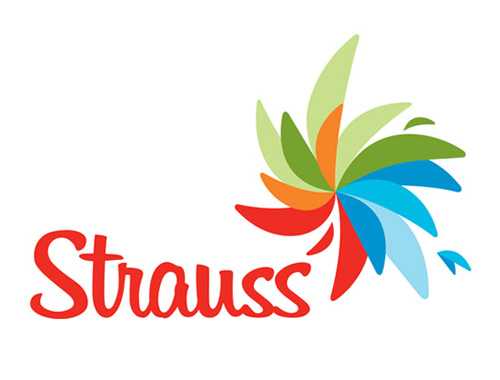TEL AVIV, Israel – Israel’s Strauss Group reported on Monday lower profits, but higher revenues for the first quarter of 2020. The maker of snacks, fresh food and coffee posted adjusted net profit of 171 million shekels ($48.4 million) in the January-March period, down from 172 million a year earlier. Strauss Group ‘s revenue rose 3% to 2.17 billion shekels ($614.167 million), though organic growth excluding foreign exchange effects was 8.1%.
Coffee sales fell 5.6% from a year earlier to 844 million shekels ($238.87 million), but were up 5% excluding foreign exchange effects.
Strauss is one of the market leaders for roast and ground coffee in central and eastern Europe. In Brazil its Tres Coracoes joint venture is the market leader with a 28.2% share.
Strauss Coffee
Strauss Coffee’s business in the first quarter was affected by different, opposing effects. Coffee sales in Israel in the first quarter amounted to NIS 235 million ($66.5 million), up 6.1% compared to the corresponding period. Sales growth is the result of increased demand due to the impacts of COVID-19; however, this growth was offset by the discontinuation of sales to the institutional market (hotels, restaurants, etc.) and by the discontinuation of the operation of the Elite Café chain.
In the international coffee business there are opposite effects as well. For example, the company’s share of sales in Brazil in local currency rose by 3.0% in the past quarter and amounted to NIS 343 million ($97 million). The increase in local currency sales is the result of growth in volumes by the company, which is the leader of the coffee market in Brazil with a market share of approximately 28.2%.
The company estimates that growth will continue and will intensify if the Mitsui transaction, signed during the first quarter, is approved. However, the economic situation in Brazil and the impacts of the global pandemic have led to significant erosion of the Brazilian Real against the shekel (an average of 18.5% in the quarter).
This erosion has reduced the company’s revenues by approximately NIS 77 million, meaning that in shekels, income in the quarter was 16.4% lower than in the corresponding period last year, and the company’s EBIT by NIS 5 million.
The outbreak of COVID-19 in Brazil is expected to mainly affect business in the second quarter, as the pandemic reached the country relatively late compared to Israel and Europe. As at the middle of the second quarter, the devaluation of the real versus the shekel has continued and even intensified, and is presently approximately 31.1% compared to the average exchange rate in the second quarter of 2019, which is expected to have a greater impact on the company’s second quarter results.
In February 2020 the Três Corações joint venture in Brazil established a joint venture with Positive Brands, that manufactures and sells mainly dairy substitute products (plant-based, mainly cashews), with an investment of approximately BRL 39 million or $7.1 million (for 50% participation in the JV).
In Russia, Ukraine and Poland sales growth in local currency was recorded, among other things as a result of the impacts of COVID-19, but in Romania and Serbia sales dropped due to intensified competition, which led to a decline in sales prices.
Due to the effect of changes in the exchange rate of the shekel against the company’s functional currencies in Eastern Europe, with the exception of Russia and Ukraine, in all countries the company recorded a drop in income in shekels compared to the corresponding period last year.
According to Strauss Group CEO Giora Bardea:
“We are today announcing our results for the first quarter, part of which was impacted by the outbreak of COVID-19, impacts which will continue to accompany us at least until the end of the year. As a socially responsible business company, we first and foremost took steps to maintain our production activities, while granting uncompromising priority to the health and safety of our people and the safety of the products we manufacture.
“These times have uniquely enhanced the role of food in people’s lives. The pandemic reminded everyone how vital it is to cultivate a local food industry that is connected to local agriculture, not only in Israel but everywhere in the world. These times emphasize the advantages of being close to your raw materials, and how crucial it is to maintain transportation and supply capabilities for raw materials and food to supermarkets and homes.
“In the first quarter we felt the impact of the coronavirus outbreak in our business in China during most of the period, whereas in other countries of operations the effect was mainly in March, but continued into April and May – months in which most of the countries in the world experienced extended lockdowns. Nevertheless, ultimately we are today announcing an excellent quarter that attests to the Group’s business and financial robustness.
“Strauss Group has assigned dedicated funds as part of its social plan to support those who faced the front line of this crisis, including the company’s front line employees, helping suppliers and regularly supplying food packages to senior citizens and medical teams. These activities were implemented across a number of geographies. The key challenge now is to optimally manage the day after the crisis and to prepare for a potential second outbreak of the virus should it occur, in accordance with our strategy for the following years.”


















